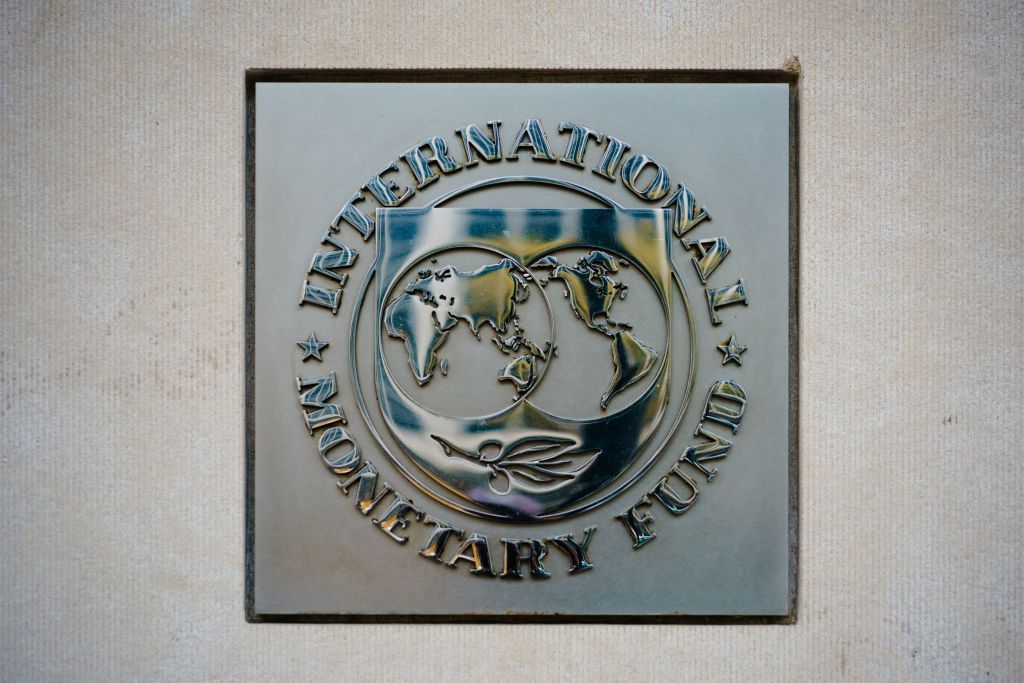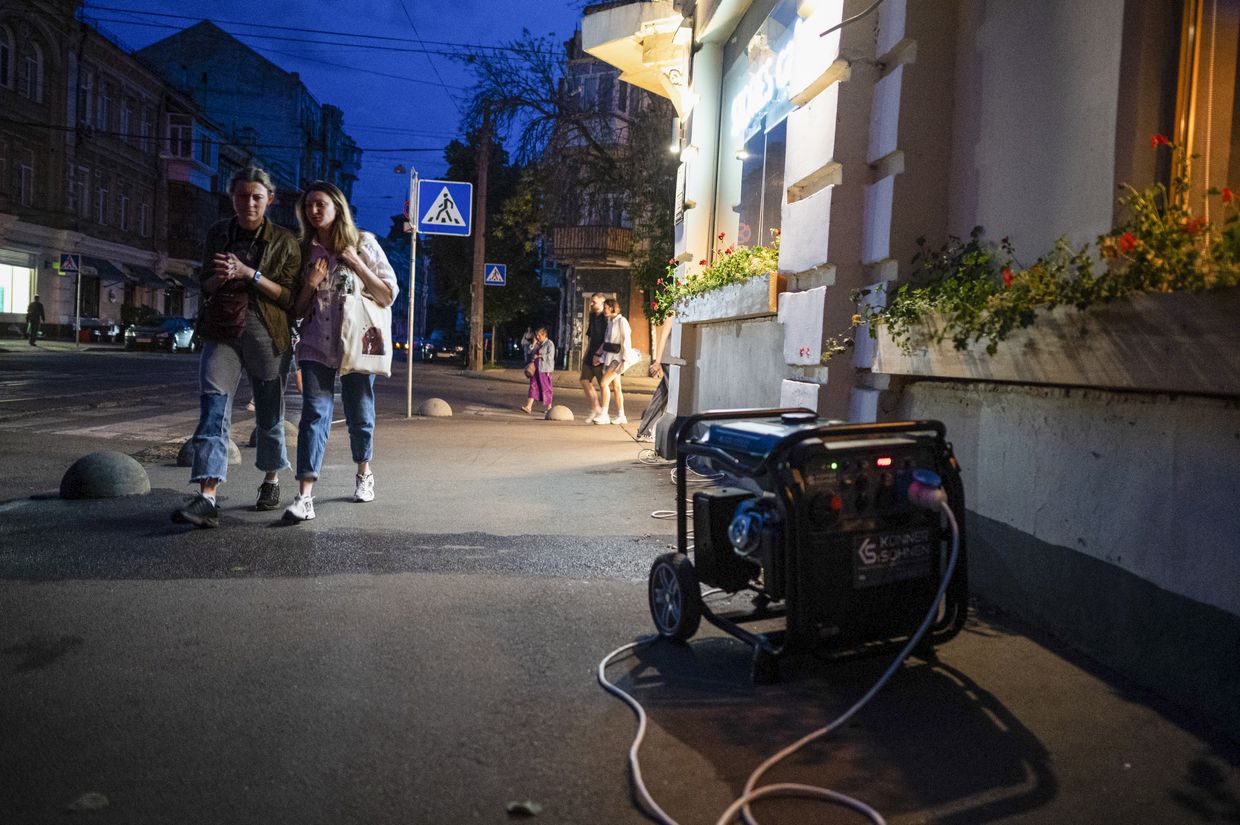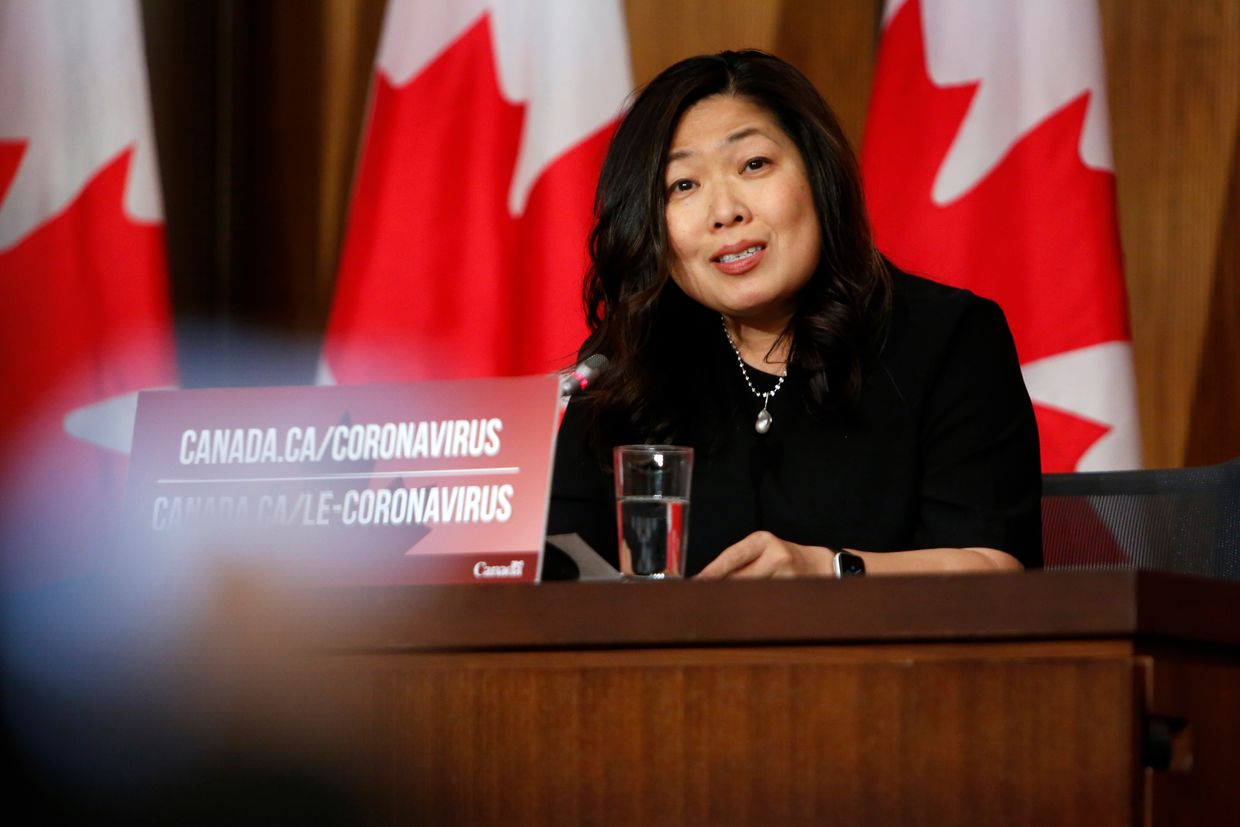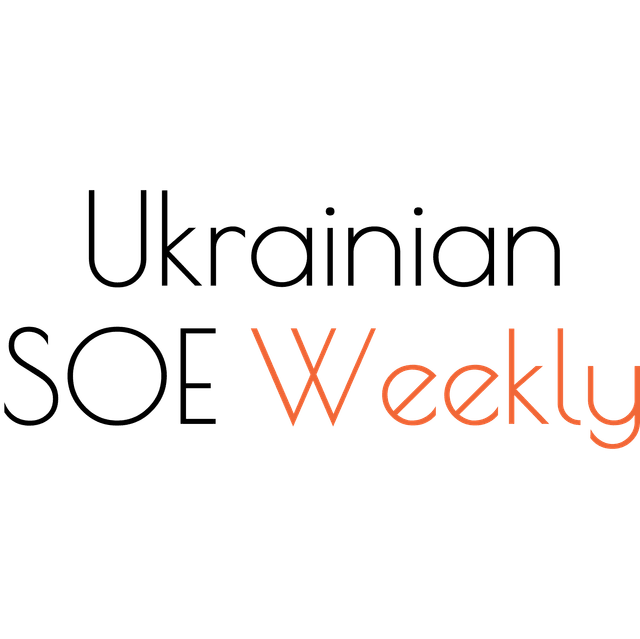Ukraine state-owned enterprises weekly — Issue 138

Editor’s Note: This is issue 138 of Ukrainian State-Owned Enterprises Weekly, covering events from June 24-29, 2024. The Kyiv Independent is reposting it with permission.
Corporate governance of SOEs
Updated IMF Memorandum. On June 28, the International Monetary Fund (IMF) published an updated Memorandum of Economic and Financial Policies (MEFP) after its fourth review under the Extended Fund Facility (EFF) for Ukraine.
Ukraine’s key commitments related to state-owned enterprises and banks include the following:
- All banks with majority state ownership will remain the responsibility of the Finance Ministry. Any nationalized non-systemic banks will be immediately given to the Individuals Deposit Guarantee Fund (DGF) for resolution (Continuous Structural Benchmark). According to the Cabinet of Ministers, it is preparing to sell two systemic state-owned banks, Sense Bank and Ukrgasbank, and plans to appoint an internationally recognized financial adviser by end-September 2024.
As we wrote in Issue 116, foreign investors were interested in buying Ukrgasbank and Sense Bank.
- The authorities will prepare a bank rehabilitation framework in consultation with the DGF and IMF staff (Structural Benchmark; end-December 2024).
- Ukraine will produce a state ownership policy, dividend policy, and privatization strategy for SOEs (end-October 2024).
In the earlier, December 2023 version of the IMF Memorandum, the deadline for this benchmark was end-August 2024.
- The authorities will analyze the debts and assess financial conditions of district heating companies (DHCs) through a desk review by a reputable audit firm, including by separating arrears until and after February 2022 (Structural Benchmark; end-October 2024 – modified and reset from end-June 2024).
Gerhard Bosch resigns as PrivatBank’s CEO. On June 26, Ekonomichna Pravda (EP) first reported the resignation, citing sources in the state-owned bank.
According to EP, the unofficial reason is the discrepancy between the tasks assigned to Bosch and the reality: When Bosch was elected as PrivatBank’s CEO in May 2021, his tasks included preparing the bank’s privatization. However, during the full-scale war, this process was put on hold, EP wrote.
On June 27, PrivatBank’s press office confirmed that the bank’s supervisory board had started the search for a new CEO. Bosch will stay on as the chief executive until a smooth transition of management and leadership of the executive board has been assured, the bank said.
Naftogaz replaces Ukrgasvydobuvannya’s acting CEO. On June 28, Naftogaz’s supervisory board replaced Oleh Tolmachev with Serhiy Lahno.
Naftogaz owns 100% of Ukrgasvydobuvannya.
Prior to his appointment, Serhiy Lahno worked as Ukrgasvydobuvannya’s chief engineer.
According to Ekonomichna Pravda (EP), on June 25, Oleh Tolmachev filed a letter of resignation, which was approved by Naftogaz’s executive board. Tolmachev has been the acting CEO of Ukrgasvydobuvannya since January 2023.
Naftogaz did not specify the reasons for his resignation.
Centrenergo replaces its CEO, the company’s press office reported on June 24. The company’s supervisory board appointed Yevhenii Harkavyi, Centrenergo’s technical director, as the new CEO. He replaced Andriy Churkin, who had been running the company since Aug. 15, 2023. Churkin is moving to a new role at Centrenergo.
"Last year, Centrenergo needed a crisis manager who could improve the company’s financial position and fill the warehouses of our thermal power plants (TPPs) with coal. The team led by Andriy Churkin coped with these tasks: For the first time in many years, Centrenergo started to operate at a profit; the company exceeded the fuel supply plan by 200%, and, as a result, we successfully completed the 2023/2024 heating season.
Now that the Russians have completely destroyed the state’s coal energy capacity, the priority is now to prevent the enemy from blackmailing us with (shutting off) heat and light. Therefore, it was decided to strengthen Centrenergo’s team with technical expertise and elect a new CEO to meet new challenges,” Andrii Gota, chairman of Centrenergo’s supervisory board, explained.
Centrenergo had three TPPs, which were essentially all the company’s assets: Trypilska in Kyiv Oblast, Zmiivska in Kharkiv Oblast, and Vuhlehirska in Donetsk Oblast.
On July 25, 2022, Russian troops occupied Vuhlehirska TPP. On 22 March 2024, Zmiivska TPP was completely destroyed.
On April 11, Trypilska TPP was completely destroyed by a large-scale Russian missile attack. The TPP provided electricity to almost 3 million people and was the largest electricity supplier in Kyiv, Zhytomyr, and Cherkasy oblasts. See SOE Weekly’s Issue 127 for more detail.
Thus, Centrenergo lost 100% of its generation.
On May 14, Harkavyi reported that Zmiivska and Trypilska TPPs were still clearing debris after the missile strikes. This should take at least another month or two, he said. See Issue 132 for more detail.
Energy sector
HACC lifted the seizure of shares in Firtash’s gas distribution companies, later they were returned to state control. On June 25, the High Anti-Corruption Court (HACC) cancelled the seizure of shares in gas distribution companies of fugitive tycoon Dmytro Firtash’s Regional Gas Company (RGC).
The court’s ruling was published on June 28. The reasoning would be disclosed in the full text of the ruling on July 1, the court added.
On the same day, the Asset Recovery and Management Agency (ARMA) reported that it had already appealed to the Prosecutor General’s Office to re-arrest the companies. Later that day, ARMA reported that Kyiv’s Pechersk District Court returned them to state ownership.
According to Stanislav Borys, co-founder of Vidar Law Firm, much depends on how well Firtash’s lawyers capitalized these three days of uncertainty. Theoretically, during this time, it would have been possible to sell assets, re-register them, change the ownership structure if the respective documents were prepared in advance, he told to Forbes Ukraine.
In our earlier issues, we reported on the wave of taking over Firtash’s gas distribution companies by Naftogaz:
- For Kharkivgaz and Dniprogaz, see SOE Weekly’s Issue 71.
- For Sumygaz, Vinnytsiagaz, and Dnipropetrovskgaz, see Issue 98.
- For Ivano-Frankivskgaz, Khmelnytskygaz, and Mykolaivgaz, see Issue 100.
- For Cherkasygaz, see Issue 104.
- For Volyngaz and Chernihivgaz, see Issue 108.
- For Zakarpatgaz, see Issue 111.
- For Rivnegaz, Zaporizhgaz, Chernivtsigaz, and Ternopilgaz, see Issue 113.
- For Tysmenytsiagaz, Korostyshivgaz, Luhanskgaz, and Melitopolgaz, see Issue 114. The two latter companies are located in the temporarily occupied territories, so their operational management would be carried out after de-occupation, Naftogaz said.
As a result, Naftogaz Group now operates 27 gas distribution companies, which were planned to be transferred to state control by the end of 2023, Naftogaz explained.
As we wrote in Issue 113, the integration of regional gas companies establishes Naftogaz as a monopoly in gas distribution, but it is a wartime measure, and they should be privatized via public auctions when “the situation allows this," Naftogaz’s CEO Oleksii Chernyshov said.
As we wrote in Issue 126, Chornomornaftogaz, as the manager of Firtash’s seized regional gas distribution companies, paid Hr 63.6 million, or 1.5 million euros at the going exchange rate, in 2022 dividends.
Naftogaz Group receives Hr 10.9 billion ($269 million) in unaudited net profit in January-March 2024, the company’s press office reported on June 27. In the same period in 2023, the Group incurred a net loss of Hr 1.4 billion ($34 million), the company said.
Naftogaz also published unaudited financial statements for Q1 2024.
Naftogaz Group made Hr 12.4 billion ($306 million) in consolidated operating profit in the first quarter of 2024, up from Hr 3.4 billion ($83.8 million) in Q1 2023.
According to Naftogaz’s CEO Oleksii Chernyshov, the financial results of the Group’s parent company, Naftogaz of Ukraine, also improved: It posted a net profit of Hr 8.1 billion ($199.6 million), which is Hr 400 million ($9.8 million) more than in the same period in 2023.
As we reported in Issue 115, Naftogaz Group paid Hr 83.4 billion ($2.1 billion) in taxes to the state budget and another Hr 6.8 billion ($167 million) to local budgets in 2023.
As we wrote in Issue 131, Naftogaz Group reported that it made Hr 23.1 billion ($569 million) in consolidated net profit in 2023, a significant rebound from its Hr 79.1 billion ($1.9 billion) loss in 2022.
As we reported earlier, Naftogaz Group paid Hr 6.1 billion ($150 million) in taxes to state and local budgets for January 2024 (see Issue 119), Hr 5.3 billion ($130 million) for February (see Issue 123), Hr 8.3 billion ($204 million) for March (see Issue 128), Hr 8 billion ($197 million) for April (see Issue 132), and Hr 9.3 billion ($229 million) May (see Issue 137).
Infrastructure
Ukrzaliznytsia establishes a new subsidiary, UZ Energo. On June 28, Ukrzaliznytsia announced the establishment of a separate legal entity, UZ Energo LLC, as the company plans to build distributed power generation in the near future.
According to current forecasts, as the autumn-winter period approaches, an increase in the shortage of electricity supply could affect the smooth running of trains and negatively affect the provision of utilities to households. Ukrzaliznytsia is an electricity water distribution system operator with more than 100,000 consumers, the company said.
“Last winter, we helped the country’s power system to supply power to certain administrative units; now, given the difficult situation with generation, we must help the country get through the most difficult autumn-winter period in our history,” Ukrzaliznytsia’s CEO Yevhen Liashchenko explained.
The newly created UZ Energo is to build gas-fired power plants in different regions of Ukraine with a total capacity of up to 250 MW. First of all, they would be installed in oblast capitals and connected to the company’s networks, which would supply power to railway transport facilities, social service infrastructure, and critical infrastructure in other sectors of the economy, Ukrzaliznytsia said.
Using gas generating units and electricity storage may only be carried out by a legal entity separate from the distribution system operator, with a license to generate electricity in accordance with the established procedure. In this regard, Ukrzaliznytsia’s executive board agreed to establish a separate company, in which 100% of the authorized capital would be owned by LLC Zbut Energy LTD, which, in turn, is 100% owned by Ukrzaliznytsia, the company added.
According to YouControl, UZ Energo LLC was registered on June 27; it is led by Arsen Voloshenyuk.
As we wrote in Issue 135, Ukrzaliznytsia reduced electricity consumption by revising the schedule of suburban electric trains. The company also announced plans to generate 250 MW in electricity from projects throughout Ukraine.
Ukrzaliznytsia receives a railway carrier license in Poland. On June 27, Ukrzaliznytsia reported that its Polish subsidiary, Ukrainian Railways Cargo Poland, obtained a railway carrier license. It can now enter the European market.
“This is another step towards creating a full-fledged international railway operator that would be able to offer its customers a single cross-border transport service. We are also working on the development and approval of new international routes,” Ukrzaliznytsia’s CEO Yevhen Liashchenko said.
At first, Ukrainian Railways Cargo Poland is expected to focus on increasing the volume of traffic through Ukrainian-Polish border crossings.
The company plans to operate 1,435 mm and 1,520 mm gauge rolling stock in the future, as Ukraine has different rails compared to much of the EU. The Polish subsidiary is expected to start providing full-fledged integrated transportation services in 2025, Ukrzaliznytsia added.
Ukrzaliznytsia established Ukrainian Railways Cargo Poland in June 2023 (see our Issue 97) and appointed Mykhailo Plastun as its CEO in August 2023 (see Issue 100).
Confiscation of Russian assets, nationalisation, and asset seizure
HACC’s Appeals Chamber confirms the confiscation of former Motor Sich president’s assets (other than his ownership stake); Ukraine gets its seventh state-owned bank. On June 15, the Appeals Chamber of the High Anti-Corruption Court (HACC) upheld the decision to impose sanctions on Vyacheslav Bohuslayev by seizing his assets. Bohuslayev is the former president of Ukraine’s leading aircraft engine manufacturer, Motor Sich.
According to HACC’s Appeals Chamber, the decision is already in force and cannot be appealed.
As we reported in Issue 128, on April 18, the HACC signed off on the sanctions and asset seizures that the Justice Ministry had requested for Bohuslayev.
According to the Prosecutor General’s Office (PGO), the following assets were seized:
- almost Hr 600 million (around $14.8 million);
- 11 real estate units, including five plots of land;
- shares in 11 companies with a sum capital of Hr 367.3 million ($9.1 million), including Motor Bank; and
- other assets.
Note that this implies that there will be another state-owned bank in Ukraine, bringing their total number to seven.
According to Inna Bogatykh, head of the ministry’s Sanctions Policy Department, the ruling also applies to Petr Kononenko, CEO of the Russian company Borisfen.
Note that Bohuslayev’s most important assets – his shares in Motor Sich itself – do not appear on the list of assets cited by the Justice Ministry or Prosecutor General's Office.
As we reported in 2022, the corporate rights of five major companies, including Motor Sich, were seized “for the needs of the state” and given to the Defense Ministry on Nov. 6, 2022.
Notably, the seizures were made under the Law on the Transfer, Forced Alienation, or Seizure of Property under Martial Law or State of Emergency, which obligates the state to return the seized assets to the owners or give them fair compensation. See our Issue 68 for more detail.
At the same time, the Security Service of Ukraine (SBU) had detained Bohuslayev two weeks earlier, in October 2022, on suspicion of collaborating with Russia.
In October 2023, the SBU and Prosecutor General's Office indicted Bohuslayev and Oleh Dziuba, former head of Motor Sich’s Foreign Trade Department. The SBU investigation found that the two individuals had been colluding with the Russian corporation Rostec, a major Kremlin-linked producer of weapons for the Russian army. Under Bohuslayev, Motor Sich had been selling aircraft engines to sanctioned Iranian companies.
If Bohuslayev is found guilty of collaborating with the aggressor state and facilitating a terrorist organization, his assets can be confiscated by law.
However, it is unclear from a legal perspective what happens to his Motor Sich shares, which must be returned to him under the Law on the Transfer, Forced Alienation, or Seizure of Property under Martial Law or State of Emergency, and whether the state is able to confiscate assets that were previously seized for the needs of the state.
On April 1, President Volodymyr Zelensky enacted sanctions against Bohuslayev and some Russian citizens.
In May 2023, Bohuslayev’s lawyer Ruslan Volynets said his client had asked to be put on a list for prisoner exchange with Russia due to his poor health and the lack of other options for release.
In February 2024, a district court in Kyiv extended Bohuslayev’s custody without the right to bail until April 18. On April 17, this pre-trial measure was extended until June 10.
Ukrainian SOE Weekly is an independent weekly digest based on a compilation of the most important news related to state-owned enterprises (SOEs) and state-owned banks in Ukraine.
The contents of this publication are the sole responsibility of the editorial team of the Ukrainian SOE Weekly.
The SOE Weekly is produced and financed by Andriy Boytsun. Communications support is provided and financed by CFC Big Ideas. The SOE Weekly is not financed or influenced by any external party.
Editorial team: Andriy Boytsun, Oleksiy Pavlysh, Dmytro Yablonovskyi, and Oleksandr Lysenko.
















